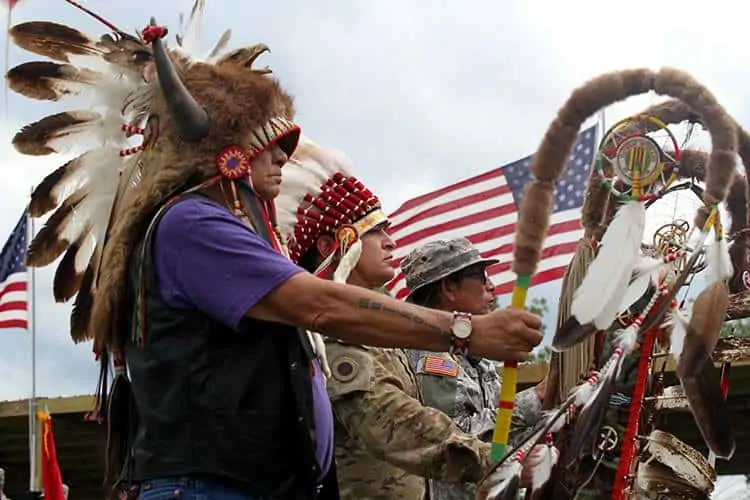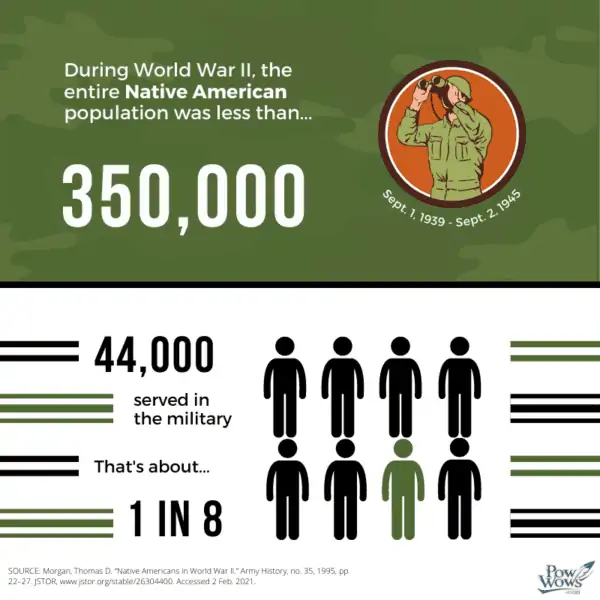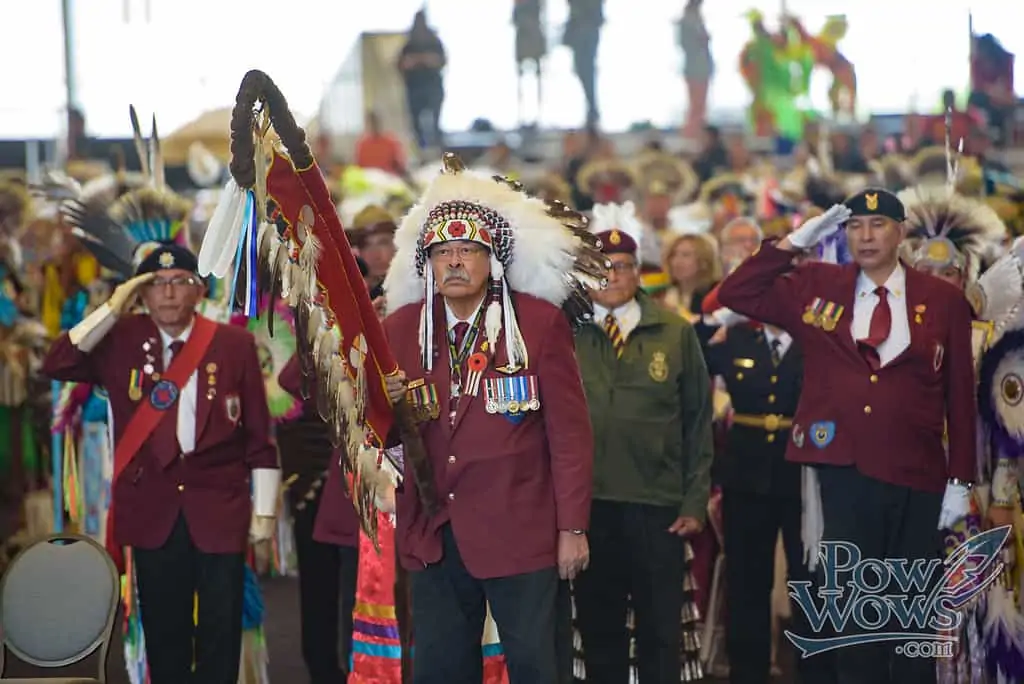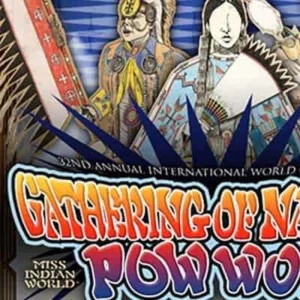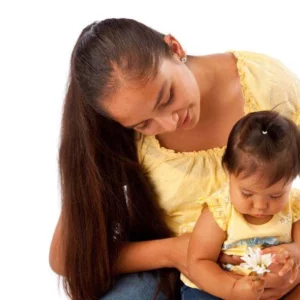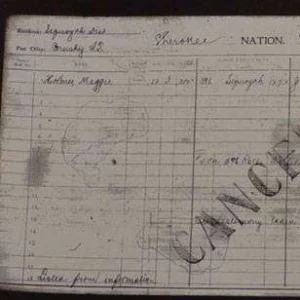Veterans Day is the one day a year, we set aside to honor our military heroes that have fought and died in order to protect the people. Sadly, the United States has a complex history with indigenous veterans, failing to properly acknowledge their sacrifice and often times ignoring their patriotism.
The truth of the matter is, many indigenous tribal nations have complex warrior system that has existed for thousands of years. Warfare practices, tactics and diplomacy are part of a warrior tradition that is older than the United States military.
The paradox lies in our very own history. Why fight for a country that has done everything in its power to exterminate us?
The answer is simple, this land is ours and the people still need warriors. Despite the broken treaties, erasure, poverty, and mistreatment, the future of our tribal nations is dependent on the survival of our people. Serving in the military is an extension of serving the community. The exact number of indigenous men and women who have served in the military is unclear since recruiters often used the wrong ethnic category. Historical ethnic military data is still a work in progress. Scholars believe indigenous people have served at a higher rate than any other ethnic group.
We have been present in every war, serving in every regimen, with fierce patriotism and honor.
Although the military opened doors through education and trade, it also placed indigenous soldiers in the most dangerous situations. Most often, they were given the most dangerous assignments due to the warped belief that indigenous soldiers had an inborn talent for tracking or scouting. This increased their chances to fight the enemy or get killed or captured.
The military also served as a way to keep some traditional practices alive that were otherwise illegal to practice in reservations. For instance, Lakota soldiers from the Standing Rock Reservation, were allowed to hold a Sun Dance ignorer to pray for protection against the German and Japanese. The balance of prayer, traditions, and a focus on community also decreases the number of soldiers who suffer from PTSD and depression. Tribal rituals that connect them to the land and the people have healed many veterans and the ceremonies honoring them are still deeply important in our community. Furthermore, celebrations and powwows around Indian Country hold events in honor of those who bravely served.
As we honor our veterans, we must also see the struggles they face. Veterans suffer from homelessness, lack of early mental health intervention, health issues, poor follow-up by administrators, and the list goes on. Our soldiers who so bravely stood for their people, are often forgotten and live in horrible conditions struggling to survive. This year, we shouldn’t just honor their sacrifice but honor who we truly are by helping them heal.
For veterans seeking assistance or information, please contact the National Congress of American Indians or the Native American Veterans Association, which honor the men and women who have served. These groups can assist veterans or dependents in applying for federal, state, and county benefits.
